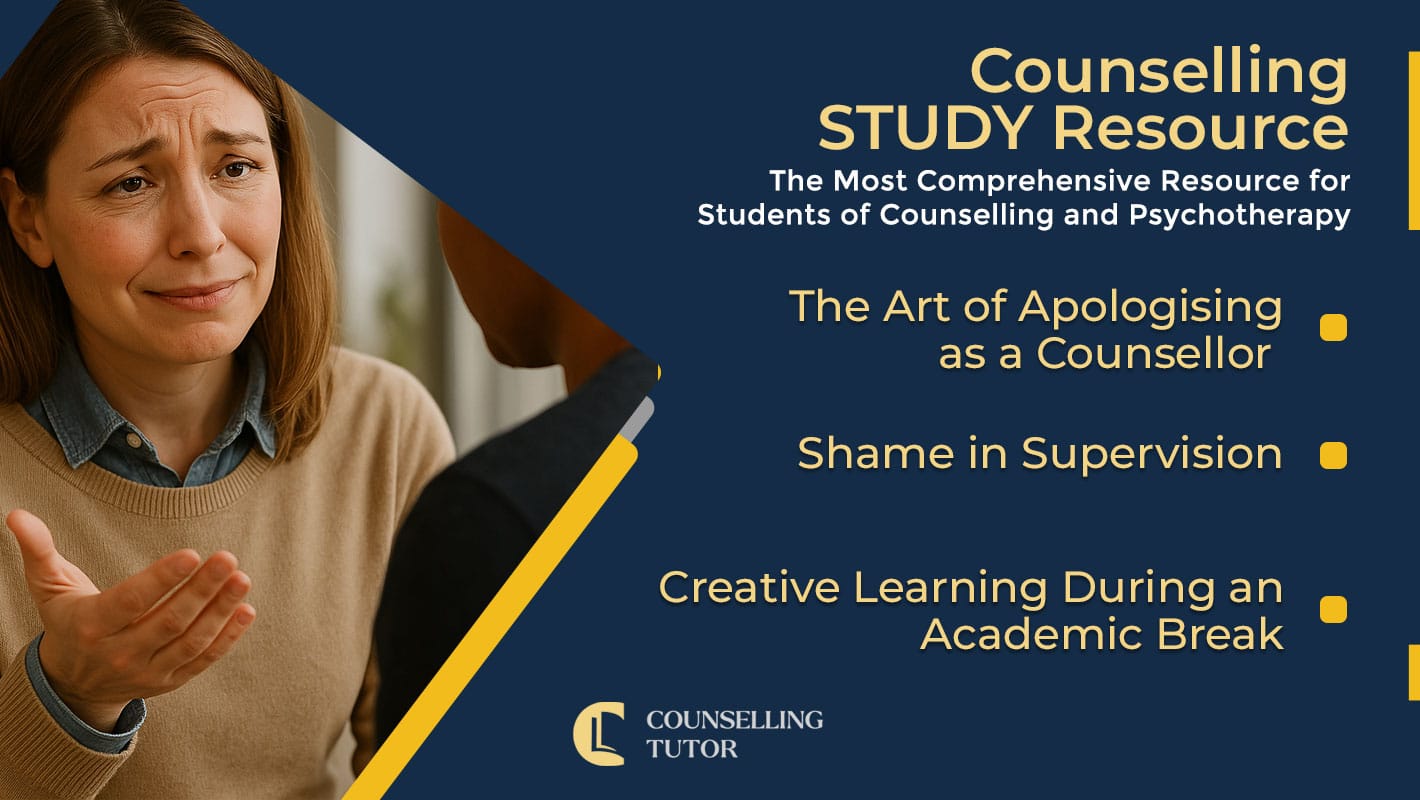See Counselling Skills Used in Real Sessions by Qualified Therapist
Real Sessions – Real Presentations – Real Skills
Gain the competence and confidence to use counselling techniques effectively!

In Episode 342 of the Counselling Tutor Podcast, your hosts Rory Lees-Oakes and Ken Kelly take us through this week’s three topics:
Firstly in ‘Ethical, Sustainable Practice’, we explore the art of apologising as a counsellor – why it matters, how to do it effectively, and how to avoid making it about yourself.
Then in ‘Practice Matters’, Rory speaks with Dr. Ruth Birkbeck about a powerful and often unspoken topic: shame in supervision. We explore what it looks like, how it can impact both supervision and client work, and what can be done to repair it.
And lastly in ‘Student Services’, Rory and Ken look at how you can make the most of your academic break with creative learning – offering tips for staying engaged without overwhelming yourself or contaminating your core training.
In this section, Rory and Ken explore what makes a meaningful apology in the therapeutic relationship.
Key points include:
Principles of a meaningful apology:

Real Sessions – Real Presentations – Real Skills
Gain the competence and confidence to use counselling techniques effectively!
In this week’s Practice Matters, Rory speaks with Dr. Ruth Birkbeck about the impact of shame in supervision.
The key points of this discussion include:
How to avoid shaming supervisees:

On-demand access to a rich lecture library covering theory, skills, and professional development for counselling students—Mapped to the UK awarding body criteria
“The Student Library has been BRILLIANT, I can’t recommend it enough!
It has been a lifeline in helping me prepare for practice and my first clients. If you’re considering it, go-for-it, it’s absolutely worth it!”
Kelly – Graduated and now in practice.
In this section, Rory and Ken offer advice on how to use your academic break effectively without overwhelming yourself or stepping outside your core training model.
Tips for creative learning:
The Art of Apologising as a Counsellor

Get on-demand Certified CPD that is implementable in your practice
